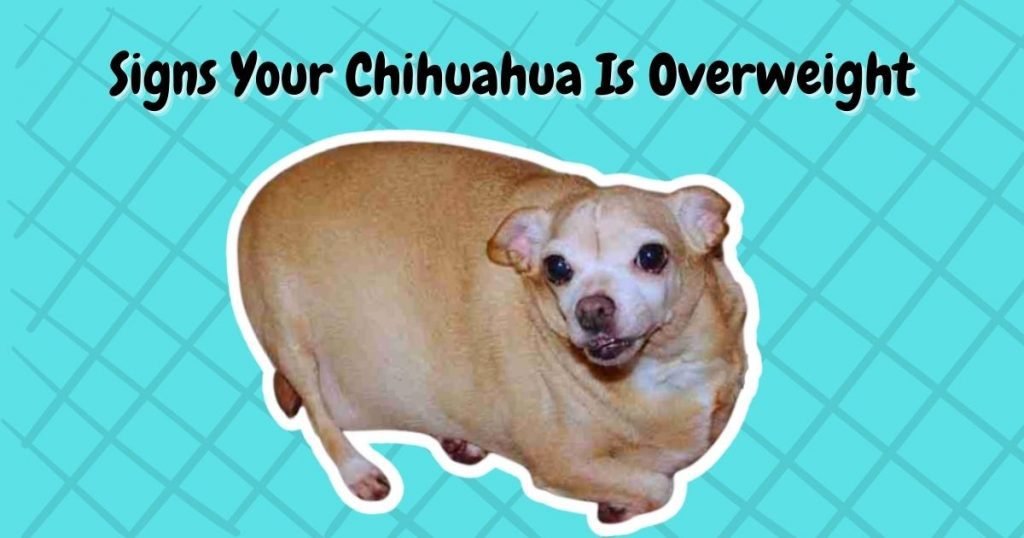As a health-savvy pet owner, I’ve always been curious about what human foods are suitable for my four-legged friends. Recently, the question that’s been on my mind is: can dogs eat seaweed? Seaweed has carved a niche for itself among health enthusiasts for its rich dose of nutrients and vitamins. But does this translate the same way for our canine pals?
Diving into the deep sea of information, I’ve found that some types of seaweed can offer similar benefits to dogs when included as part of seaweed snacks for dogs – under the right conditions. The key is to make sure it’s unsalted and free from any added garlic or other seasonings that could be harmful. So, if you’re wondering, “is seaweed safe for dogs,” stick with me as we explore the safe ways of incorporating seaweed into your dog’s diet.
Can Dogs Eat Seaweed? Yes, they can in small amounts.
- Some types of processed seaweed, like nori, are safe for dogs in moderation.
- Always opt for seaweed that is free from additives like salt or garlic.
- Seaweed can offer health benefits to dogs, such as improved brain development and joint health.
- It’s crucial to monitor the amount of seaweed given to avoid potential iodine overdose.
- Always consult with a vet before introducing seaweed into your dog’s diet.
- Watch out for wild seaweed at the beach, as it can be harmful if ingested by dogs.
- Choose dog-specific seaweed products to ensure safety and health benefits.
Understanding the Popularity and Nutritional Value of Seaweed
As a health-conscious dog parent, I’ve watched with interest as seaweed for dogs has moved from obscurity to a widely-talked-about supplement in the pet industry. It’s not just a trend; the nutritional profile of seaweed makes it clear why it’s becoming foundational in formulating holistic dog diets. Rich in a variety of nutrients, it’s no wonder that this marine plant is starting to appear more frequently in our four-legged friends’ bowls.
Seaweed as a Nutrient-Rich Superfood
Calling seaweed a “superfood” might seem like a stretch until you examine the facts. Loaded with essential nutrients like iodine and Omega-3 fatty acids, it’s got all the markers of a dietary powerhouse—for humans and dogs alike. The positive impact on red blood cell health and brain development, attributed to the benefits of seaweed for dogs, has catapulted this humble algae into the spotlight. For me, incorporating seaweed into my dog’s diet has made a noticeable difference in his vitality and overall health.
Why is Seaweed Gaining Attention in Canine Diets?
Incorporating seaweed in dog food is more than just a fad. It’s about harnessing the nutritional content that seaweed naturally provides, such as iron, magnesium, and proteins, that are crucial for a dog’s immune system and energy levels. Notably, there’s an important distinction to be made between kelp and other types of seaweed, all of which can be beneficial to dogs when offered in the right form and quantity. With careful inclusion, seaweed is inviting a wave of nutritional improvements in canine health, reinforcing its growing reputation as an excellent supplement choice for dogs.
Can Dogs Eat Seaweed?
As a pet owner, I’ve often wondered which snacks are both healthy and safe for my dog. An intriguing option that keeps coming up is seaweed, particularly the convenience and potential benefits of dried seaweed sheets. The question “can dogs eat seaweed sheets?” isn’t uncommon among dog enthusiasts looking to diversify their pet’s diet with nutritious options.

After some research and consultations, I’ve come to realize the importance of being selective about the types of seaweed dogs can eat. Plain and dried seaweed, like the sushi rolls’ nori, seem to pass the test—granted they’re free from additives that could harm your furry friend.
What Experts Like Dr. Jerry Klein Say
Experts such as Dr. Jerry Klein, Chief Veterinary Officer of the American Kennel Club, calibrate my confidence in feeding dogs seaweed. He contends that when served appropriately, certain processed forms like nori are indeed safe for canine consumption. Still, he stresses the significance of checking for harmful additives like salt or garlic that are a definite no-go.
Identifying Safe Seaweed Varieties for Dogs
Given the green light on canines consuming processed seaweed, it’s my responsibility as a pet parent to identify safe seaweed varieties. I’ve learned it’s all about the fine print—the ingredients list—which must be scoured for any hidden seasonings or additives. It seems that as long as the seaweed is plain, we can safely say yes to feeding dogs seaweed as a treat.
Health Advantages of Seaweed for Dogs
As I dive deeper into the world of canine nutrition, I’ve discovered that seaweed for dogs isn’t simply about offering a novel treat. It’s about tapping into an extraordinary source of natural nutrients that can contribute extensively to their well-being. One of the remarkable benefits of seaweed for dogs is the way it supports muscle function and energy levels, thanks to its substantial magnesium and iodine content. This is particularly notable given the active lifestyles that our furry companions often lead.
Moreover, the rich array of fatty acids found in seaweed is not only good for humans but also plays a vital role in maintaining a strong immune system for our dogs. It’s about providing that extra barrier of well-being to help them fend off illnesses. The fatty acids work in tandem with other nutrients to nurture their skin and coat, leaving them with a shiny, healthy appearance that screams vitality.
But, let’s not forget the younger members of the pack. The nutritional profile of seaweed can be especially advantageous for puppies in their development stage. We’re looking at aiding their growth and ensuring they evolve into healthy, robust dogs. This is why incorporating seaweed supplements for dogs into their diet—within safe parameters—can be a game-changer for their overall development.
It’s thrilling to consider that something as simple as seaweed can help manage body inflammation, which is a concern for many dog owners, particularly as their pets age. Through proper diet and supplementation, we can potentially ease some of their discomfort and enhance their quality of life—naturally.
My journey in ensuring the healthiest options for our four-legged friends is ongoing, but I’m convinced that seaweed has earned its place as a worthy addition to a dog’s balanced diet. Clearly, these marine plants carry a multitude of health benefits that align with our dogs’ needs, when offered in safe and suitable amounts.
The Role of Seaweed in Dog Nutrition
When I dive into the world of dog nutrition, the seaweed segment truly fascinates me. It’s not just about giving our furry friends a special treat; it’s about enhancing their diet with something both nutritious and delicious. As I explore seaweed for dogs, I find that we’re on the brink of a wellness revolution, one that incorporates the sea’s green bounty into our pets’ diets in a responsible and healthful way.
Necessity of Iron and Omega-3s for Canine Health
The prominence of seaweed in dog food isn’t just a trend; it’s backed by the iron and Omega-3 fatty acids that seaweed naturally provides. Think of iron as the building block of hemoglobin, carrying life-giving oxygen to your dog’s muscle and brain cells. Meanwhile, Omega-3s are the anti-inflammatory warriors, essential for maintaining joint health and warding off conditions like arthritis, which can severely affect our dogs’ quality of life. Seaweed supplements for dogs have become a go-to choice for pet owners looking to infuse these essential nutrients into their companions’ diets.
Understanding Magnesium and Protein Contributions
Magnesium plays an unsung role, yet it is a catalyst for over 300 biochemical reactions in your dog’s body, including vital metabolic and nerve functions. On the protein front, seaweed provides the necessary support for muscle maintenance and tissue repair, two critical aspects for dogs of all ages. To say that seaweed makes for a simple dog treat would be an understatement; rather, it’s a powerhouse of nutrients that fortifies the core aspects of a thriving canine physiology.

In my journey to understand what best serves the health of dogs, integrating seaweed thoughtfully into their diet is a practice I genuinely endorse. Of course, with all good things, moderation is key, and ensuring that your beloved pet gets seaweed intended for dogs – free of additives and balanced according to their nutritional needs – is paramount. Discovering the value of seaweed in dog nutrition has been both enlightening and delightful, reaffirming my commitment to pursuing what’s best for our canine companions.
Feeding Dogs Seaweed Safely
As pet owners, we strive to give our furry friends the best, and that includes treats like seaweed snacks for dogs. When I consider adding seaweed to my dog’s diet, I focus on the health benefits it might offer. However, safety is paramount, and here’s what I’ve discovered about doing it the right way.
Proper Seaweed Servings for Your Pet
Finding the right balance is key when feeding dogs seaweed. It’s essential to provide plain, unseasoned options since added flavors, particularly high-salt ones like soy sauce, can be harmful. When it comes to portions, moderation is crucial. A small amount can be a nice change of pace and a healthy addition to their diet, but only if the serving size is carefully managed.
The Dangers of Excessive Iodine from Seaweed
While seaweed is an iodine-rich snack, which can support thyroid health, too much of it poses risks of feeding dogs seaweed in large quantities. Excessive iodine can disrupt thyroid function, leading to serious health issues. Therefore, it’s crucial to gauge how much seaweed your dog ingests to avoid any potential threats to their wellbeing.
Beyond careful feeding at home, there’s the matter of unsupervised snacking, especially at the beach. In such settings, dogs might come across wild seaweed, which is a no-go area. This type of seaweed, coupled with the risks of salt toxicosis and possible intestinal blockages, warrants close attention to your dog’s beach exploits to keep them safe and healthy.
Risks of Seaweed Consumption in Dogs
As we delve into understanding seaweed as a potential supplement for our canine friends, it’s crucial to consider not only the benefits but also the risks of feeding dogs seaweed. While certain types of seaweed in dog food can yield positive health results, the direct consumption of wild seaweed found on beach outings can pose serious hazards.
Understanding Salt Toxicosis from Wild Seaweed
One of the more alarming dangers is salt toxicosis. When dogs feast on seaweed washed ashore, they inadvertently ingest high salt levels that their bodies cannot process effectively. This excess salt can lead to dehydration, kidney damage, and even life-threatening complications. Such cases require immediate veterinary intervention to manage the intense repercussions on a dog’s health. It’s a poignant reminder that natural isn’t always synonymous with safe, and my experience underscores the need for vigilance in keeping beachcombing pets away from these risky snacks.
Avoiding Intestinal Blockages with Proper Seaweed Forms
Moreover, the physical form of seaweed can cause internal concerns such as blockages. Dried seaweed can expand upon contact with a dog’s stomach fluids, leading to gastrointestinal distress or obstruction — a scenario no pet owner wants to witness. It’s vital to recognize that not all snacks marketed as seaweed-derived are appropriate for dogs. Products meant for human consumption, including seaweed snacks or chips, often contain ingredients like garlic or onion powder, which are toxic to dogs. To sidestep these concerns, opting for seaweed supplements for dogs that are specifically tailored for and approved by veterinarians is my firm recommendation for keeping furry companions healthy and happy.
Risks of Seaweed Consumption in Dogs
Seaweed as a Nutrient-Rich Superfood
Seaweed is considered a superfood due to its rich nutritional profile, including essential vitamins and minerals. It is particularly known for its high content of iodine, magnesium, and Omega-3 fatty acids, all of which play a vital role in a dog’s diet when offered in appropriate amounts.
Why is Seaweed Gaining Attention in Canine Diets?
The popularity of seaweed in canine diets is due in part to its potential health benefits for dogs. It’s rich in nutrients that can support red blood cell health, brain development, and maintain or boost a dog’s immune system, which is why more pet parents and dog food companies are including it in their formulations.
What Experts Like Dr. Jerry Klein Say
According to experts like Dr. Jerry Klein, dogs can consume certain types of processed seaweed, such as seaweed sheets or nori, if they’re free from harmful additives like salt or garlic. As with any treat, it should be given in moderation.
Identifying Safe Seaweed Varieties for Dogs
When choosing seaweed for dogs, it’s critical to opt for plain, unflavoured varieties that are free from added salt, garlic, onions, or other harmful seasonings. Processed seaweed products specifically made for dogs are the safest bet to avoid any risks.
Seaweed can be a healthy snack for dogs, offering a natural source of important nutrients like iodine, which supports thyroid function, and Omega-3 fatty acids that promote skin and coat health as well as reduce inflammation. It’s also believed to support heart health and improve digestion.
Necessity of Iron and Omega-3s for Canine Health
Iron is essential for the creation of red blood cells while Omega-3 fatty acids aid in reducing inflammation, which can help prevent disorders like arthritis. Both are found in seaweed and contribute to overall canine health and wellbeing.
Understanding Magnesium and Protein Contributions
Magnesium plays a significant role in metabolic processes and nerve functions in dogs, while protein is crucial for muscle and tissue development. Seaweed, being rich in these nutrients, can be a beneficial addition to a dog’s diet.
Proper Seaweed Servings for Your Pet
Like any treat or supplement, seaweed should be fed to your dog in moderation. Overfeeding can lead to health issues due to excess iodine and other minerals. Always consult with your vet to determine the proper serving size for your dog based on their specific dietary needs.
The Dangers of Excessive Iodine from Seaweed
While some iodine is necessary for healthy thyroid function, excessive amounts can lead to thyroid imbalance. It’s important to monitor the amount of seaweed your dog eats to prevent iodine overdose.
Understanding Salt Toxicosis from Wild Seaweed
Consuming wild seaweed can lead to salt toxicosis, a condition caused by the high levels of salt in marine plants. This can be dangerous and requires immediate veterinary attention.
Avoiding Intestinal Blockages with Proper Seaweed Forms
Dogs should never be allowed to eat dried wild seaweed as it can expand in the stomach, potentially causing blockages. It’s best to provide seaweed products specially designed for dogs to minimize the risk of gastrointestinal issues.








